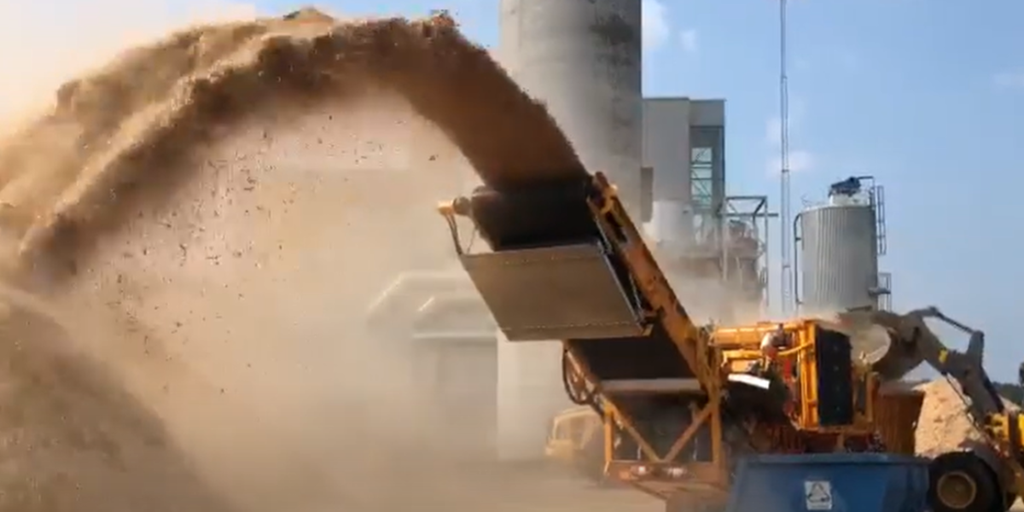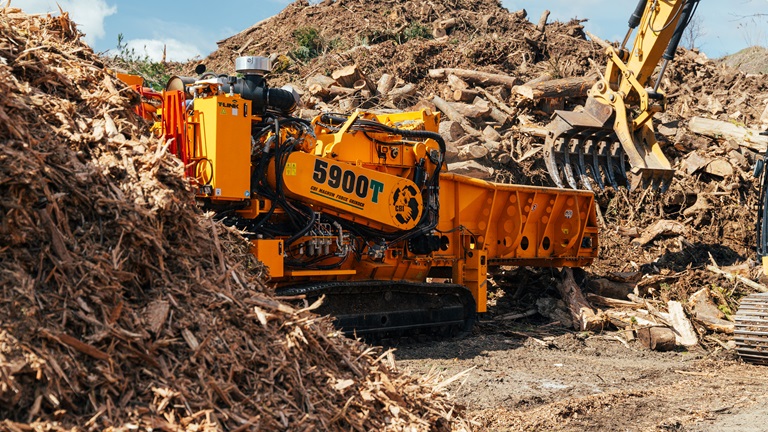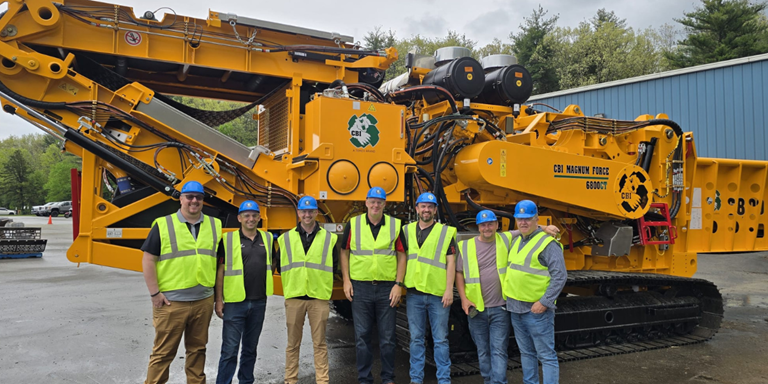
As the world increasingly seeks sustainable and renewable energy sources, the role of biomass in the energy sector has become more prominent. Biomass chippers and grinders are at the forefront of this transformation, converting wood waste into valuable resources like heat and electricity. This article explores the technology behind these machines and their impact on energy production and environmental sustainability.
The Potential of Biomass:
Biomass, derived from organic materials such as wood waste, agricultural residues, and other plant material, is a renewable energy source that can significantly reduce our reliance on fossil fuels. When processed correctly, biomass can be used to generate heat, electricity, and even biofuels, making it a versatile and valuable resource.
The Role of Chippers and Grinders:
Biomass chippers and grinders play a crucial role in preparing wood waste for energy production. These machines reduce large pieces of wood and forestry residues into smaller, more manageable sizes, suitable for further processing in bioenergy facilities. By converting wood waste into uniform, high-quality biomass, these machines ensure efficient combustion and energy production.
How It Works:
- Chipping: Biomass chippers are designed to handle large volumes of wood waste. They efficiently break down logs, branches, and other wood materials into smaller chips. These chips serve as the primary feedstock for biomass energy production.
- Grinding: Following the chipping process, grinders like the CBI 6800CT Horizontal Grinder take over. These machines further reduce the wood chips into finer particles, enhancing their suitability for combustion and improving energy yield. The grinding process ensures uniformity and maximizes the surface area for more efficient burning.
Benefits of Using Biomass Chippers and Grinders:
- Waste Reduction: One of the most significant benefits of biomass chippers and grinders is their ability to reduce wood waste. Forestry operations and wood processing industries generate vast amounts of waste that would otherwise occupy valuable landfill space. By converting this waste into biomass, these machines contribute to waste reduction and resource optimization.
- Renewable Energy Production: The biomass produced from chippers and grinders serves as a renewable source of energy. When burned in bioenergy facilities, this biomass generates heat and electricity, providing a sustainable alternative to fossil fuels. This process not only reduces greenhouse gas emissions but also promotes energy independence.
- Economic Benefits: Investing in biomass chippers and grinders can lead to significant economic benefits. By utilizing wood waste for energy production, businesses can lower their energy costs and even generate additional revenue through the sale of excess biomass. Moreover, the biomass industry creates jobs in manufacturing, maintenance, and bioenergy production, boosting local economies.
Several companies and municipalities have successfully implemented biomass chippers and grinders to convert wood waste into energy. The below video shows the CBI 6800CT Horizontal Grinder producing for a biomass plant in Arizona. Material is hauled to a renewable energy facility and burned under controlled and low emissions conditions to generate electricity.
The below CBI 6400CT Horizontal Grinder is regrinding waste wood in Sweden to make burner fuel. This biomass is used to heat houses and produce electricity.
Using biomass for energy production has a positive environmental impact. It helps reduce the amount of wood waste that would otherwise decompose in landfills, releasing methane, a potent greenhouse gas. Additionally, biomass energy production is considered carbon-neutral, as the carbon dioxide released during combustion is offset by the carbon dioxide absorbed by the plants during their growth.
The future of biomass energy looks promising, with ongoing advancements in chipping and grinding technology. Innovations aimed at increasing efficiency, reducing emissions, and enhancing the quality of biomass will continue to drive the industry forward. As more industries and communities recognize the benefits of biomass, the demand for efficient chippers and grinders will likely grow.
Biomass chippers and grinders are essential tools in the quest for sustainable energy solutions. By converting wood waste into valuable biomass, these machines contribute to waste reduction, renewable energy production, and economic growth. As technology advances and the world continues to prioritize sustainability, the role of biomass in the energy sector will undoubtedly expand, paving the way for a cleaner, greener future.
To learn more about CBI’s biomass equipment, visit our website or contact us.
If you would like to get our upcoming blogs directly into your inbox- sign up to our Bear Tracks Newsletter.





